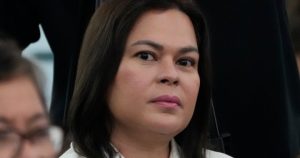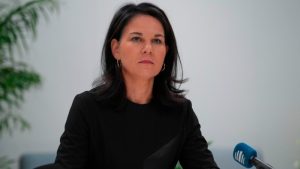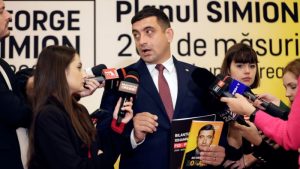UN carbon trading expert group agrees deal on market framework
Unlock the Editor’s Digest for free
Roula Khalaf, Editor of the FT, selects her favourite stories in this weekly newsletter.
A UN expert group has reached a compromise on key elements of a global carbon trading system, in a bid to resolve nearly a decade of talks on what is seen as an important tool for raising climate finance.
The 12-strong group which includes representatives from the EU and Saudi Arabia — traditionally opposed on climate policy — chose to “go beyond their formal mandate and establish standards by themselves”, said Eve Tamme, managing director of advisory group Climate Principles.
Carbon trading is among the top priorities for negotiation at the UN COP29 climate summit to be held in Baku next month, to formalise a market first sketched out as part of the 2015 Paris agreement.
In principle, it would allow governments to claim other countries’ emission cuts towards their own climate targets by trading instruments that represent one tonne of carbon dioxide removed or saved from the atmosphere.
The unilateral adoption of the framework in Baku this week by the UN body responsible for making recommendations on a trading system made the global carbon market “basically operational,” said Tamme.
The expert group overcame major sticking points between jurisdictions, such as the US and the EU, including how to monitor and define what counts as carbon “removal”.
The sale of the carbon credits could help to fund climate adaptation projects in poorer nations. Among the outstanding issues is which types of carbon removal and reduction will be allowed.
It could also have the unintended consequence of allowing oil-producing nations to avoid their responsibility to phase out fossil fuels or make cuts in their industrial emissions.
The UN body’s former chair and current member Olga Gassan-Zade said in a post on social media that she had “huge reservations” about the decision to accelerate the process.
Aspects of the new standards had been created “on the fly” during a break in talks, she said, including a provision on a buffer pool of credits, meant to act as an insurance policy for carbon trading system.
The UN body said it had acted “to ensure the mechanism can remain agile.”
But external observers warned the agreed recommendations for carbon markets suffered from a lack of clarity and integrity.
Jonathan Crook, policy expert for campaign group Carbon Market Watch and an observer to the UN’s climate change arm, said the provisions for the monitoring of credits for risk of “reversal” — for example, because of wildfires releasing the stored carbon from trees — were not strong enough.
Countries meeting for final negotiations at COP29 next month could still in theory override the UN body’s decision on a framework for what is known as article 6.4 of the Paris agreement, which creates a centralised international trading system for companies and countries.
There is “no 100 per cent guarantee” that the standards would be waved through next month, Crook said, although there was “very high” pressure on countries to do so.
A separate framework for bilateral carbon deals between governments under article 6.2 of the same agreement has yet to be fully agreed. But this has not stopped countries striking dozens of tentative agreements to trade carbon, according to IETA, which represents carbon traders.
Luke Oliver, head of climate investments at specialist asset manager KraneShares said the creation of a detailed UN framework on carbon trading at Baku next month would help the unregulated market worth roughly $1bn a year mature from its current “optimistic, altruistic and aspirational” state.
The carbon talks have taken place amid low expectations that Azerbaijan will broker an ambitious agreement at COP29 on other ways to raise money for developing countries or make progress on the agreed phase out of fossil fuels.
National delegates in Baku for pre-COP meetings this week are also discussing a new financial goal, aimed at helping developing countries cope with climate change. Little progress was made when ministers met on Wednesday, according to people in the room.
One person said countries simply repeated their entrenched positions for much of the discussions on climate finance. They continued to clash over the basic matters of who should pay, how much the goal should be and how funds would be distributed.
Climate Capital

Where climate change meets business, markets and politics. Explore the FT’s coverage here.
Are you curious about the FT’s environmental sustainability commitments? Find out more about our science-based targets here
#carbon #trading #expert #group #agrees #deal #market #framework




